63 Inspiring Edmund Hillary Quotes That Will Motivated You To Do The Impossible
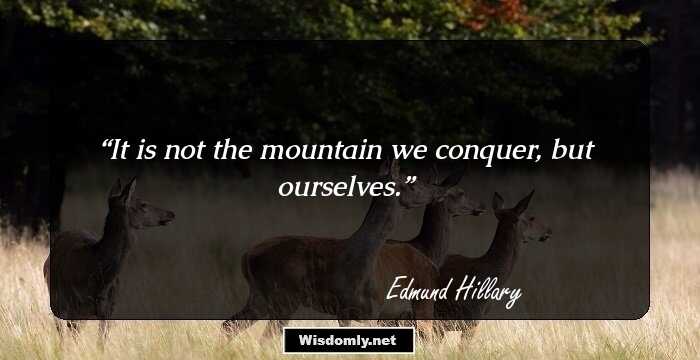
It is not the mountain we conquer, but ourselves.
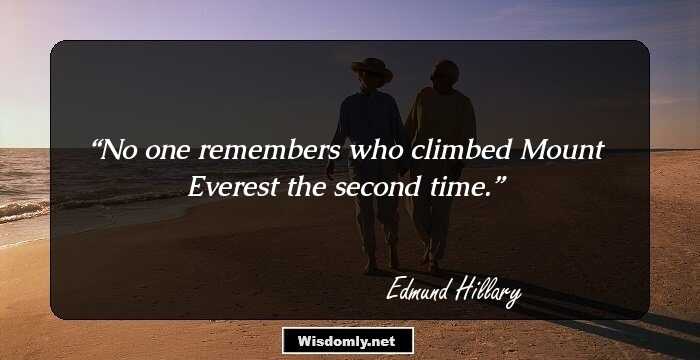
No one remembers who climbed Mount Everest the second time.
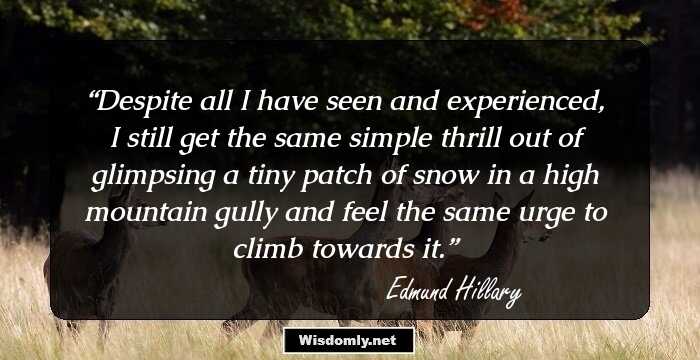
Despite all I have seen and experienced, I still get the same simple thrill out of glimpsing a tiny patch of snow in a high mountain gully and feel the same urge to climb towards it.
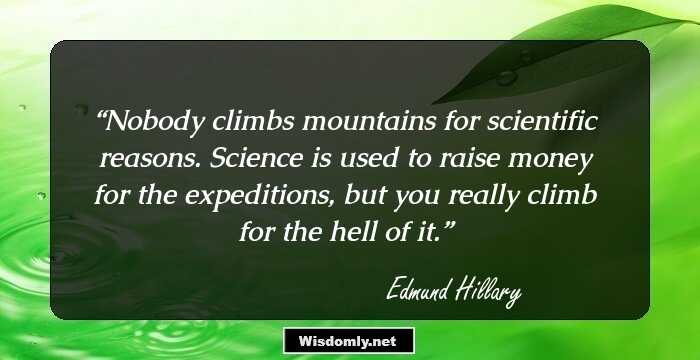
Nobody climbs mountains for scientific reasons. Science is used to raise money for the expeditions, but you really climb for the hell of it.
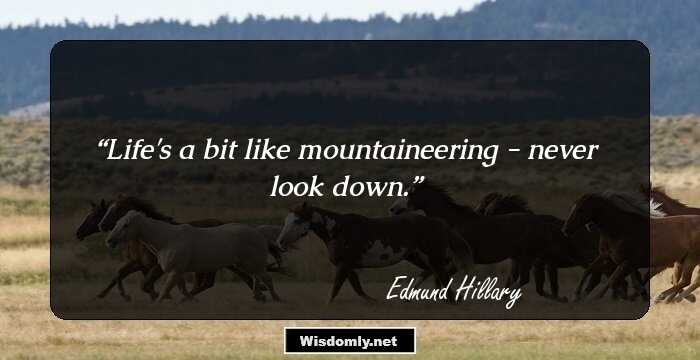
Life's a bit like mountaineering - never look down.
I think I mainly climb mountains because I get a great deal of enjoyment out of it. I never attempt to analyze these things too thoroughly, but I think that all mountaineers do get a great deal of satisfaction out of overcoming some challenge which they think is very difficult for them, or which perhaps may be a little dangerous.
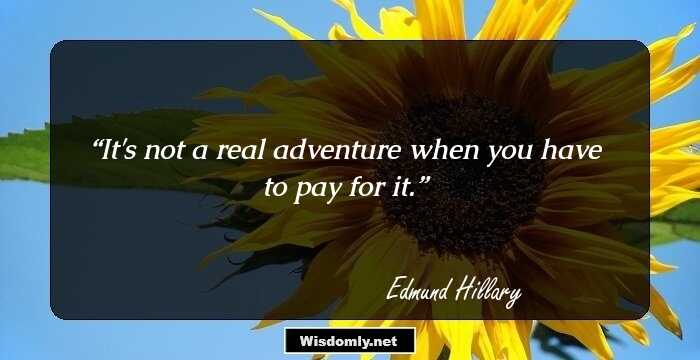
It's not a real adventure when you have to pay for it.
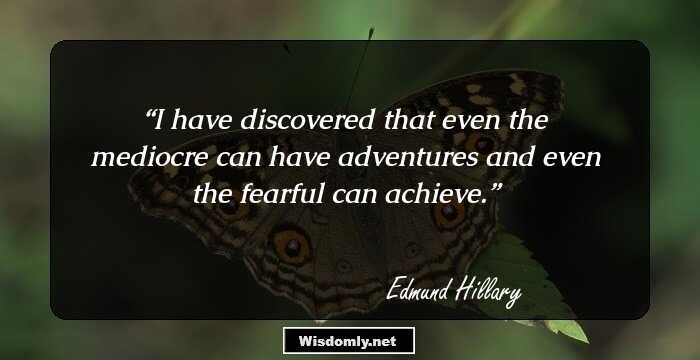
I have discovered that even the mediocre can have adventures and even the fearful can achieve.
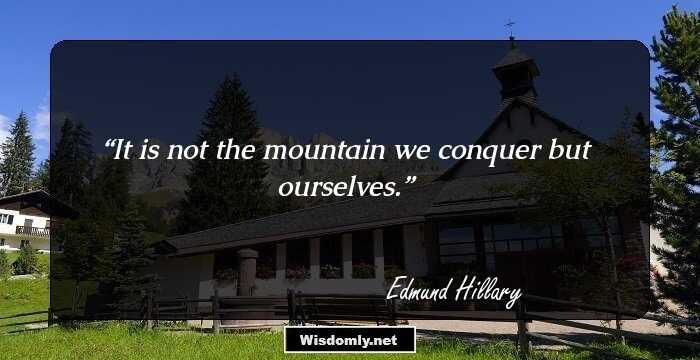
It is not the mountain we conquer but ourselves.
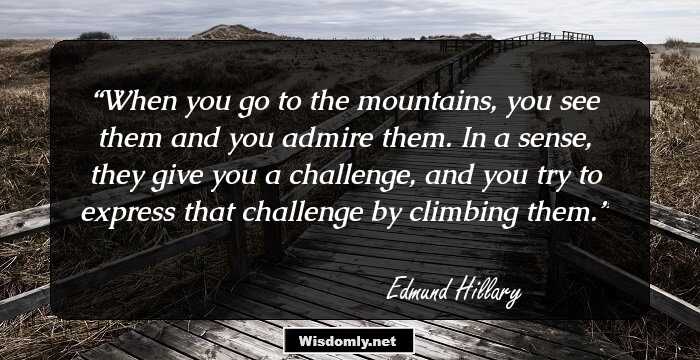
When you go to the mountains, you see them and you admire them. In a sense, they give you a challenge, and you try to express that challenge by climbing them.
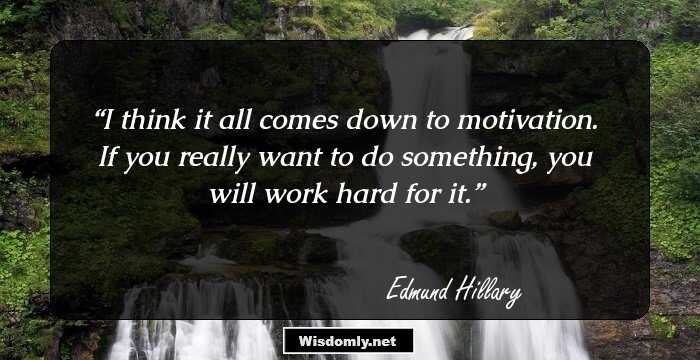
I think it all comes down to motivation. If you really want to do something, you will work hard for it.
Good planning is important. I've also regarded a sense of humor as one of the most important things on a big expedition. When you're in a difficult or dangerous situation, or when you're depressed about the chances of success, someone who can make you laugh eases the tension.
If you cannot understand that there is something in man which responds to the challenge of this mountain and goes out to meet it, that the struggle is the struggle of life itself upward and forever upward, then you won't see why we go.
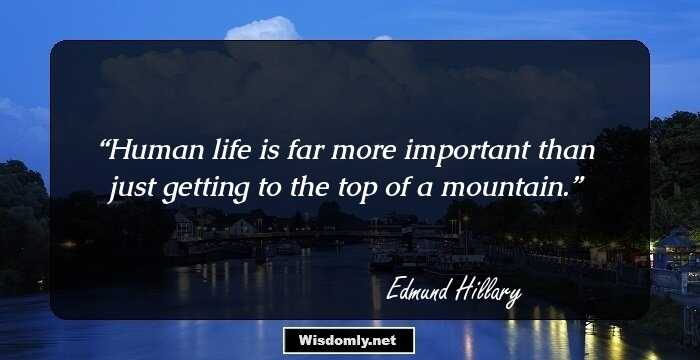
Human life is far more important than just getting to the top of a mountain.
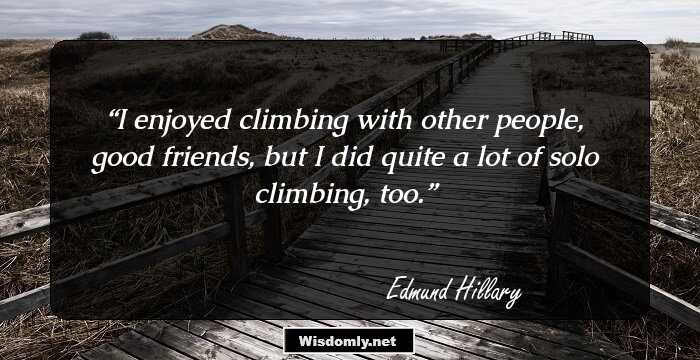
I enjoyed climbing with other people, good friends, but I did quite a lot of solo climbing, too.
There is something about building up a comradeship - that I still believe is the greatest of all feats - and sharing in the dangers with your company of peers. It's the intense effort, the giving of everything you've got. It's really a very pleasant sensation.
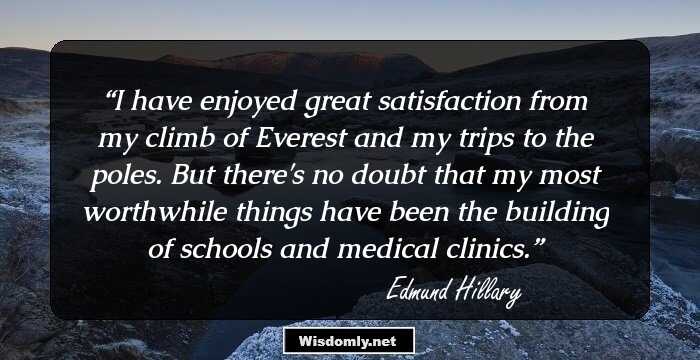
I have enjoyed great satisfaction from my climb of Everest and my trips to the poles. But there's no doubt that my most worthwhile things have been the building of schools and medical clinics.
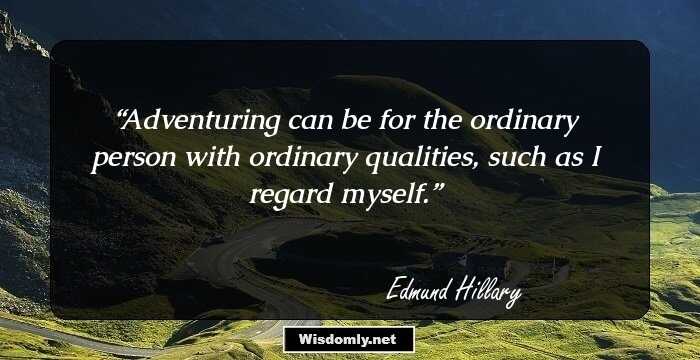
Adventuring can be for the ordinary person with ordinary qualities, such as I regard myself.
While on top of Everest, I looked across the valley towards the great peak Makalu and mentally worked out a route about how it could be climbed. It showed me that even though I was standing on top of the world, it wasn't the end of everything. I was still looking beyond to other interesting challenges.
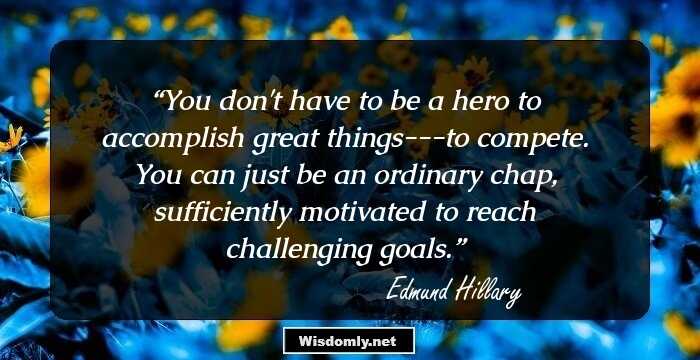
You don't have to be a hero to accomplish great things---to compete. You can just be an ordinary chap, sufficiently motivated to reach challenging goals.
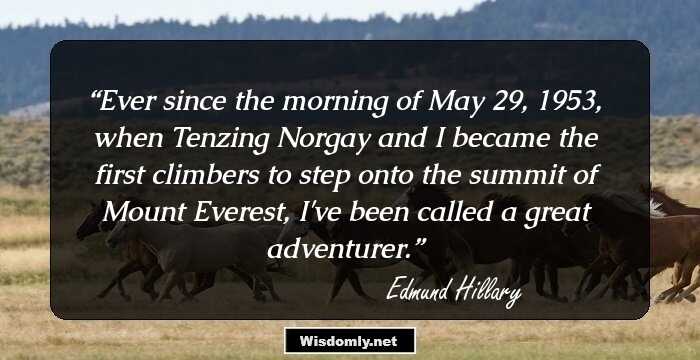
Ever since the morning of May 29, 1953, when Tenzing Norgay and I became the first climbers to step onto the summit of Mount Everest, I've been called a great adventurer.
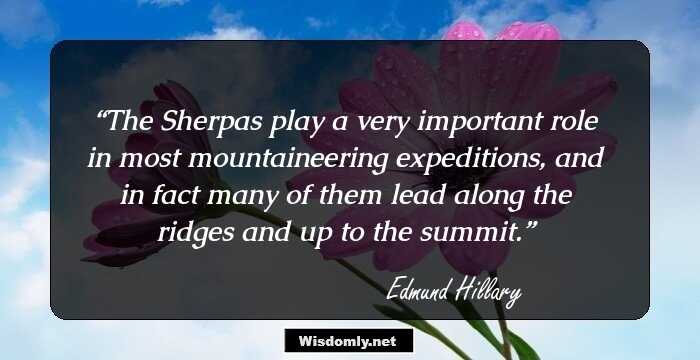
The Sherpas play a very important role in most mountaineering expeditions, and in fact many of them lead along the ridges and up to the summit.
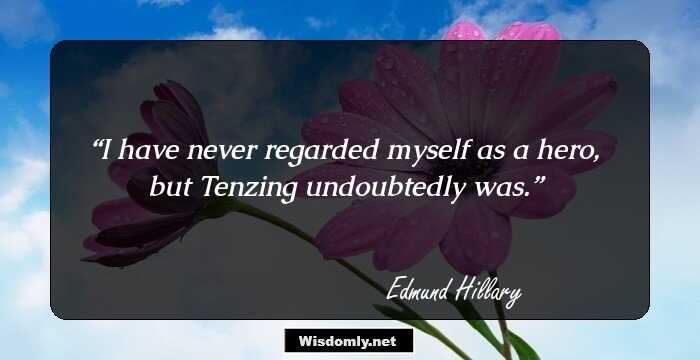
I have never regarded myself as a hero, but Tenzing undoubtedly was.
I think my first thought on reaching the summit- of course, I was very, very pleased to be there, naturally - but my first thought was one of a little bit of surprise. I was a little bit surprised that here I was, Ed Hillary, on top of Mt. Everest. After all, this is the ambition of most mountaineers.
I'm sure the feeling of fear, as long as you can take advantage of it and not be rendered useless by it, can make you extend yourself beyond what you would regard as your capacity. If you're afraid, the blood seems to flow freely through the veins, and you really do feel a sense of stimulation.
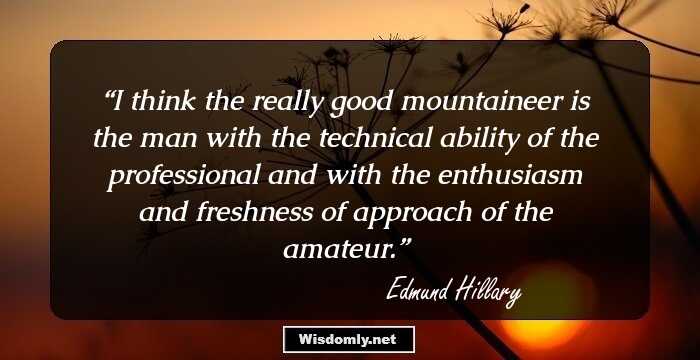
I think the really good mountaineer is the man with the technical ability of the professional and with the enthusiasm and freshness of approach of the amateur.
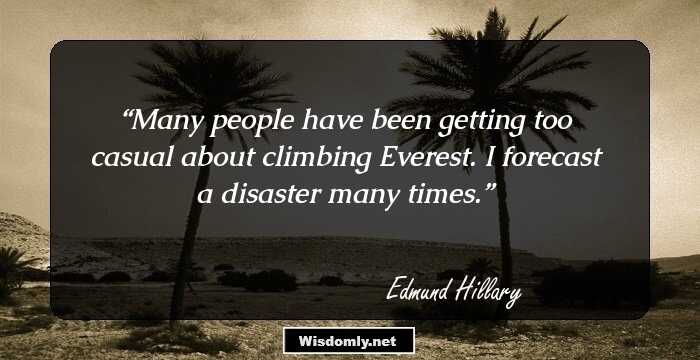
Many people have been getting too casual about climbing Everest. I forecast a disaster many times.
Tourism is a very big economic benefit to the Sherpa people, and also, they have very strong ties to their own social attitudes and their own religion, so fortunately, they're not too influenced by many of our Western attitudes.

I really haven't liked the commercialization of mountaineering, particularly of Mt. Everest. By paying $65,000, you can be conducted to the summit by a couple of good guides.
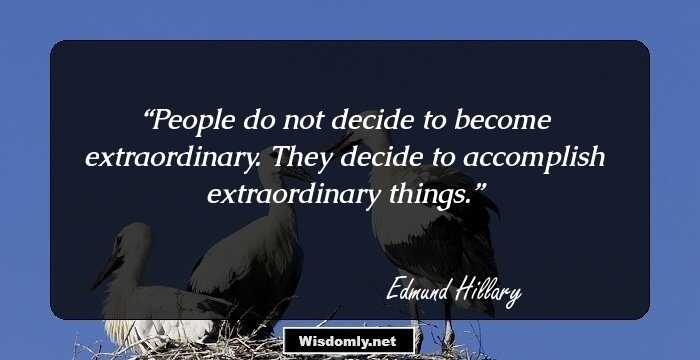
People do not decide to become extraordinary. They decide to accomplish extraordinary things.










